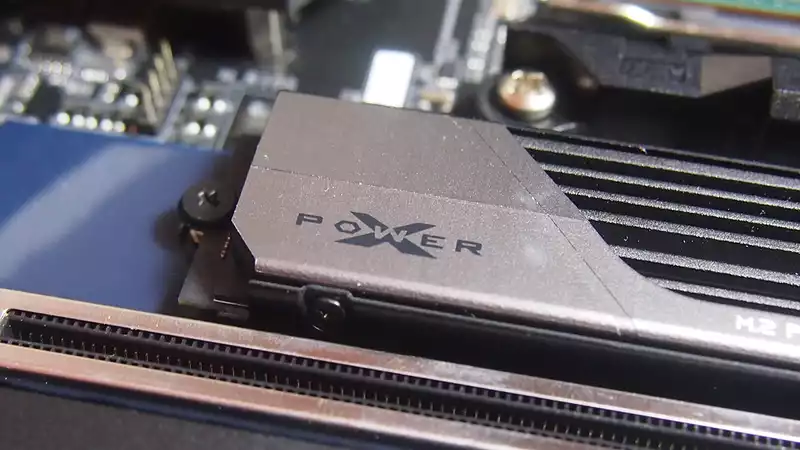Silicon Power is perhaps a less high-profile brand than brands like Samsung and WD, but one look at its latest XS70 NVMe SSD with its high-end specifications makes it clear that brand name is not everything. Armed with the latest Phison controller and high-performance NAND flash memory, drives like the SiliconPower XS70 should have no problem competing with the best SSDs on the market.
At $240 (A$499), the XS70 is very affordable for a high-performance 2TB SSD, but other third-party SSD manufacturers are competing heavily in this price range. Does Silicon Power Drive have what it takes to take market share from the giants in this space?
The Silicon Power XS70 2TB SSD is a 2280 (80mm long) M.2 PCIe NVMe drive that combines Micron 176-Layer TLC NAND with a Phison PS5018-E18 controller and 2GB of DDR4 RAM. This is a combination common to many of the best SSDs, including the highly regarded Seagate FireCuda 530 and Kingston KC3000.
Micron claims its 176L TLC NAND is the best in the industry with a 30% smaller die size and 35% better read and write latency than its previous generation 96L NAND. It is easy to see why most OEM SSD manufacturers use this NAND for their high-end designs. [The 2TB XS70 is rated at 7300 MB/sec sequential read speed and 6800 MB/sec write speed. Considering the overhead, this is close to the limit of a PCIe 4.0 x4 interface. Significantly faster sequential speeds will have to wait until future PCIe 5.0 drives are available. Random read/write IOPS are 1M/1M. This is excellent. [The 2TB model I am testing has an endurance of 1400TBW and comes with a 5-year warranty. This is comparable to most recent Phison drives, but the Seagate 530 brings this up to a very impressive 2550 TBW. However, to reach these numbers, the drive must be abused in writes.
The XS70 is designed with PS5 compatibility in mind, so the heatsink isn't as bulky as some others. It really looks good. However, Silicon Power's designers deserve credit.
The XS70 comes in a small package reminiscent of a flash drive. The lack of software support may get in the way of inexperienced users cloning existing drives, which is not a problem if you intend to use it with the PS5, but will be lacking for PC users expecting a software support ecosystem. Of course, there are many programs that offer diagnostic support and S.M.A.R.T. monitoring.
The XS70 does not have hardware encryption, so if that is important to you, you will need to look elsewhere. Again, with the PS5, you will not have to think about the drive other than installing it, closing the case, and checking the drive's capacity.
Real World Performance
Synthetic Storage Performance
Because it is a Phison E18 drive with 176L NAND, one would expect it to perform very closely to similar drives like the Seagate 530, which is exactly what it does. Sequential speeds are comparable. In random read performance, the XS70 has a slight (albeit insignificant) lead. Since the Silicon Power drive was released a few months after the Seagate drive, the difference between the two could be attributed to firmware.
The XS70 performed well in thermal testing. A load temperature of 63°C for the highest spec PCIe 4.0 SSD is outstanding, indicating that modern high-performance SSDs require some cooling, either from a bundled heatsink or the motherboard. Bare PCIe 4.0 drives are simply too hot.
Overall, the XS70 is comparable to the fastest SSDs on the market. Since the introduction of drives such as the Seagate, Kingston, and MSI Spatium M480, this space has become increasingly competitive, mostly dominated by SSDs that operate within a margin of error of each other.
Performance is not necessarily the clear differentiator at this time, and cost performance is more important than ever.
The realm of high-performance SSDs is narrowing. Drives with the latest NAND and Phison E18 controllers are everywhere. Performance differences have largely disappeared, with aesthetics, thermal characteristics, and most importantly cost performance becoming the differentiators.
The Silicon Power XS70 2TB is not a revolutionary product, but no one expects it to be. It's not perfect, with proprietary software and no hardware encryption, but for PS% and PC gamers, that won't matter. Load up your game library and you'll love it.
The XS70's excellent all-around performance makes it a very attractive option and well worth considering if the price is competitive at the time you are considering buying.
.

Comments